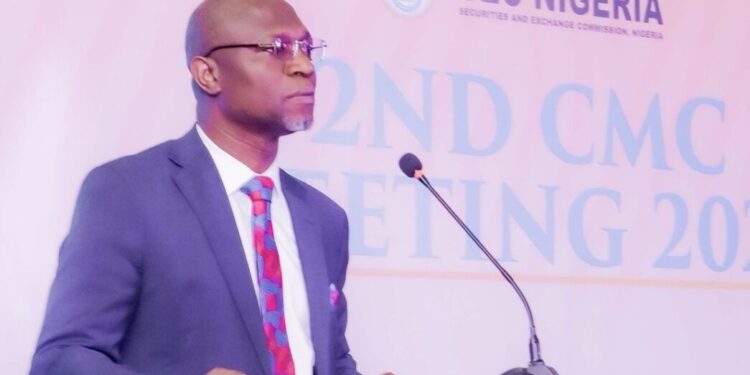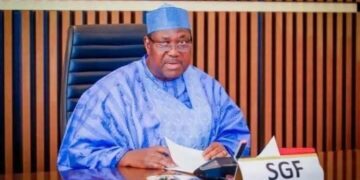The Federal Government of Nigeria has issued six Sovereign Sukuk bonds worth N1.1 trillion (approximately $657.6 million) to fund 124 federal road projects spanning over 5,820 kilometers across the country’s six geopolitical zones.
Emomotimi Agama, the Director-General of the Securities and Exchange Commission (SEC), announced this at the ongoing second International Islamic Capital Market Conference in Karachi, Pakistan.
A Sukuk bond, also known as an Islamic or Sharia-compliant bond, is a financial certificate that grants investors partial ownership of an issuer’s assets.
Agama highlighted the growing success of Sukuk in Nigeria, stating, “The success rate has made the Islamic Capital Market (ICM) a resilient and innovative tool for mobilizing resources.” He also noted the consistent oversubscription of Sukuk issuances, with subscription rates reaching as high as 441%. Since 2017, the issuance of sovereign Sukuk has played a vital role in the development of ICM in Nigeria.
The expansion of Sukuk has extended beyond the federal government, with states like Osun and Lagos, as well as entities such as Family Homes Ltd. and TAJ Bank Plc, utilizing Sukuk to finance various projects, including school infrastructure, housing, and bank capital.
“These instruments have been pivotal in funding school infrastructure and housing projects, and are the first of their kind in Nigeria, with Sukuk also being used for tier 1 capital for a bank, highlighting its versatility as a financing tool,” Agama explained.
The SEC also emphasized the growing scope of Nigeria’s Islamic finance sector. “Beyond Sukuk, the ICM segment in Nigeria offers a wide range of investment opportunities,” Agama remarked. As of November 2024, there were 14 registered Halal mutual funds with a combined net asset value of over N105 billion. Additionally, the NGX Lotus Islamic Index tracks 11 Sharia-compliant equities, and ChapelHill N-REIT has emerged as Nigeria’s first Islamic Real Estate Investment Trust.
Agama reaffirmed the SEC’s commitment to fostering the growth of the Islamic finance sector through its Non-Interest Capital Market Master Plan (2015–2025), which aims for Sukuk to contribute 15% of the total market capitalization by 2025.
Looking to the future, Agama emphasized the potential of Islamic finance to address Nigeria’s economic challenges, particularly in critical areas such as infrastructure, financial inclusion, and the low penetration of mortgages.
“Islamic finance is solving some practical challenges and needs of the Nigerian economy,” he remarked.
“This is the time to stake positions that will no doubt produce competitive returns and satisfy ethical and sustainability concerns,” he added.
The Federal Executive Council has approved a $2.2 billion external borrowing plan. This financing strategy will include a combination of Eurobond and Sukuk issuances, estimated at $1.7 billion and $500 million, respectively, aimed at strengthening Nigeria’s fiscal stability. Edun stated that the success of the Federal Government’s economic reforms has positioned Nigeria to access financing from the international capital market.






